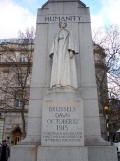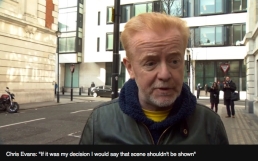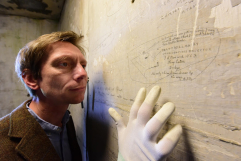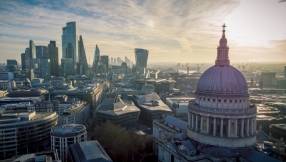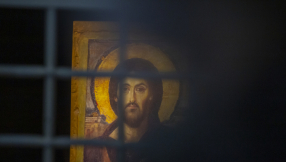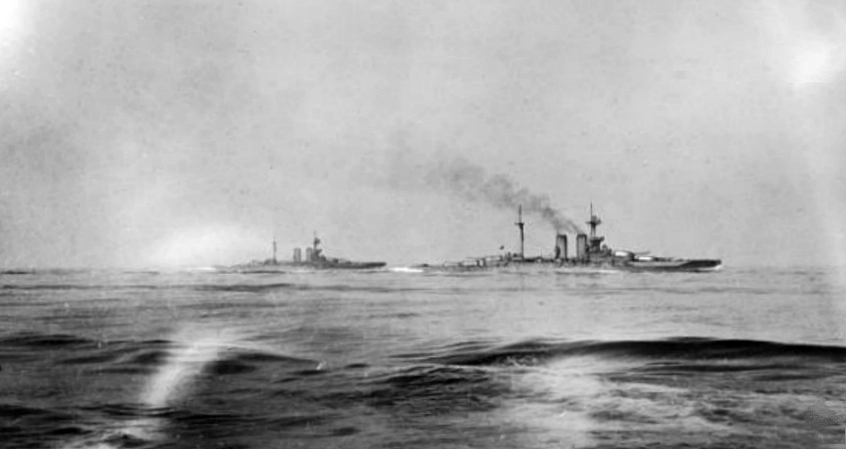
The hundredth anniversary of the Battle of Jutland has been marked with a service at St Magnus' Cathedral in Kirkwall, Orkney.
The cathedral is the most northerly in the British Isles and the closest to the only battle between the British and German Grand Fleets of the First World War.
The service was led by the minister of the cathedral, Fraser MacNaughton. He was joined by the Royal Navy's chaplain of the fleet, the Venerable Ian Wheatley, and a German naval chaplain.
It was attended by the Prime Minister, David Cameron, and the First Minister of Scotland, Nicola Sturgeon.
German President Joachim Gauck was also present, with the Princess Royal representing the British Royal Family. The Duke of Edinburgh had been expected to attend but was unwell. His son-in-law Vice-Admiral Sir Tim Laurence, said: "He just has a minor ailment and I think at his age it would be unwise to go and stand in a windswept cemetery for a long period at that stage."
Representatives of all the other nations connected to the battle – Australia, Canada, Ireland, Japan, Malta, New Zealand and South Africa – were at the cathedral. A Royal Marines band paraded through Kirkwall to the service.
Thousands of ceramic poppies were installed at the cathedral and a specially commissioned piece of music by the late Master of the Queen's Music, Sir Peter Maxwell Davies, who lived on Orkney, was performed.
Descendants of those who fought at the battle also attended the commemorations, which drew to a close at the cemetery on the island of Hoy where 450 servicemen are buried.
A service also took place on HMS Duncan at Jutland Bank, the site of the battle.
The Battle of Jutland was claimed as a victory by both the British and German navies. It was fought in darkness and fog over two days in a series of engagements. While the Royal Navy lost more ships and men – 14 sunk and 6,097 deaths – than the German, at 11 ships sunk and 2,551 lives lost, the German navy retreated to port and did not venture out for the rest of the war. Its failure to break the British blockade that would starve Germany into surrender represented a huge strategic defeat.
Admiral Jellicoe, described by Winston Churchill as "the only man who could lose the war in an afternoon", has been blamed – most historians say unfairly – for being over-cautious in not pursuing and destroying the German fleet. Many of the British losses have been put down to gunnery practices in which safety was sacrificed for speed.











